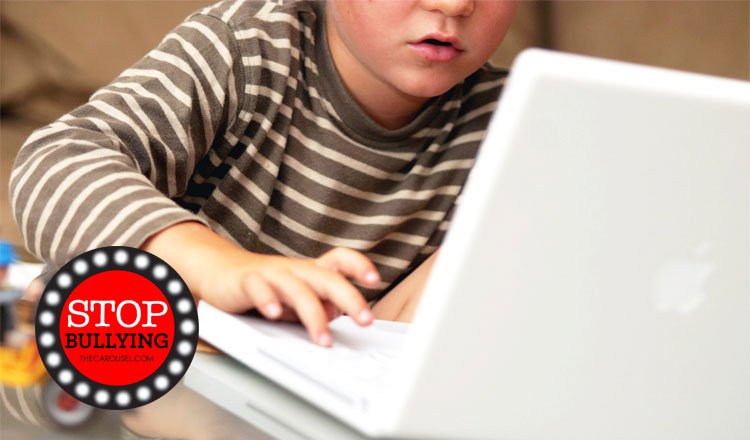Bullying is something no child should have to experience. However, one in four young people report they are bullied every two weeks or more often. The effects of bullying can be severe, sometimes lasting into adulthood, so it’s important we understand it properly and find solutions fast.
In this post of The Carousel’s Anti-Bullying series, we spoke with Jeremy Blackman, Senior Cybersafety Specialist with The Alannah and Madeline Foundation, a national charity protecting children from violence and its devastating effects to give advice on your bullying experiences. Cyberbullying has become ever more prevalent in your people’s lives, with 21% of 14-15 year-olds reporting they have experienced cyberbullying and a massive 74% of those saying it happened in the past year, according to the Australian Communications and Media Authority report. What’s even more alarming is that “cyberbullying is perceived by children to be an inevitable consequence of using social networks,” according to the report.
This week, Mandy, 33, asks for advice about her son being excluded from social networking conversations by his peers and cyberbullying.
CYBERBULLYING: When Peers Exclude A Child Through Social Netwroking Sites
Q. ‘My 11 year-old son has an account on Facebook – I know he shouldn’t, but all his classmates do and he was feeling really isolated without one. Anyway, it’s helped him to fit in socially at school over the last few months. But now some of the students are having conversations online without involving him, and have even formed separate groups to talk about when they’re next going to go skate-boarding or just catch up. I feel like he’s back to square one again. What can I do to help?’
A. Firstly, it is against Facebook’s Terms and Conditions for someone under 13 to use their services. But, with peer pressure, this may not mean a whole lot to your son. Nevertheless, you need to try and reinforce this at home. The kind of deliberate exclusion you describe (whether offline or online) is defined as bullying, and is one of the most common forms – it can often consist of very subtle behaviours. The best advice in this situation is to work closely with the school to make sure school policies are also consistent with what the students’ families condone. There should be comprehensive and up-to-date ‘Acceptable Use’ and ‘Anti-bullying’ policies at the school – ideally these are created and maintained with ongoing student and parent consultation. The eSmart Schools Framework is used by over 2,200 schools Australia-wide to help generate these kinds of school-wide policies and expectations – it is worth enquiring to make sure your son’s school is registered.
To help in the short-term, the best thing your son can do is mix with friends who aren’t caught up in the ‘who’s in/who’s out’ dynamic happening on Facebook. Spending more time offline with these classmates will help, and proactively seeking other chances to develop these friendships, whether it’s joining a new sports club or other activity. This will also mean that he will avoid constantly thinking about what he might be missing out on online, and it will hopefully change the power dynamic enough so that the online friendship groups lose interest in the exclusion ‘game’.
What is bullying?
According to the National Centre Against Bullying, an initiative of The Alannah and Madeline Foundation, bullying is defined as “when an individual or a group of people with more power, repeatedly and intentionally cause hurt or harm to another person or group of people who feel helpless to respond. Bullying can continue over time, is often hidden from adults, and will probably continue if no action is taken.” This is a frightening reality for any child and parent.
Dealing with bullies…
The NCAB sees bullying as “a relationship problem which requires relationship-based solutions” and advises that “these are best solved in the social environment in which they occur. In a child or young person’s life, this is most often the school.” This means the place to start is in the environment where it occurred.
Need more help?
Great Australian resources for parents can be found at:
- The Alannah and Madeline Foundation is a national charity protecting children from violence and its devastating effects.
- Victoria Department of Education and Early Childhood Development
- Youth BeyondBlue
If your child needs to speak to someone about their experience Kids Helpline is Australia’s only free, private and confidential, telephone and online counselling service specifically for young people aged between 5 and 25, Kids Helpline can be contacted on 1800 551 800.
For more stories on The Carousel’s Anti-Bullying Series and cyber-safety, click here
Has your child experienced cyberbullying? How did you manage the situation? Share your learnings and experience with other parents in the comments below.







